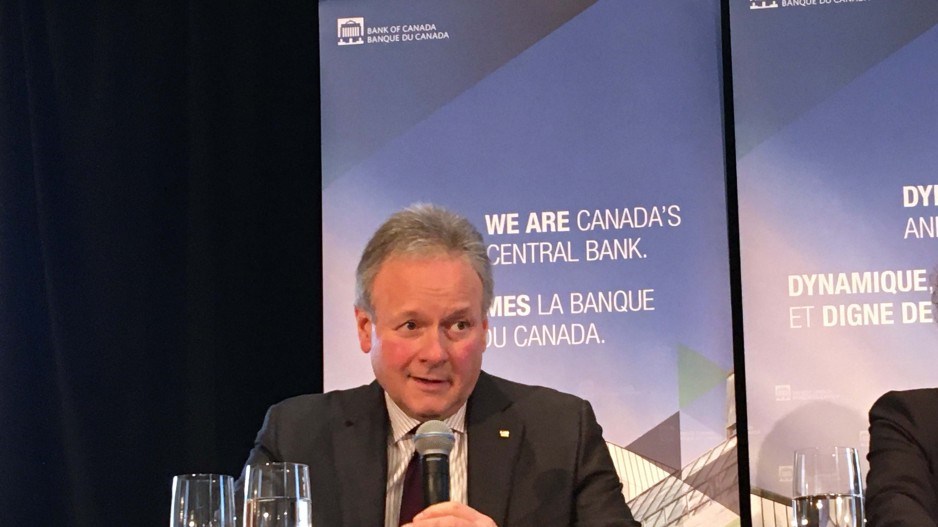Build a city in the middle of nowhere and real estate in the centre will become increasingly pricier. A premium will always be paid for those spaces most central as it takes residents from the outskirts longer to travel across the growing city.
“It’s as simple as that,” Stephen Poloz, former governor of the Bank of Canada (BoC), told a crowd gathered Thursday at the Terminal City Club in downtown Vancouver, where oceans, mountains and borders surround the region.
“When you have physical constraints like here in Vancouver, I mean, home prices have to go up.”
The central banker acknowledged a potpourri of different factors were behind the region’s affordability crisis, such as low interest rates, an abundance of capital available in the market and municipal zoning restrictions.
“How do you solve it? Honestly, there may be a variety things but supply is the primary reason,” Poloz said during a fireside chat, adding the population is only expected to grow further — a prospect that could only further heighten issues with the housing market.
And while he noted “interest rates of approximately zero are going to puff up the housing market,” the prospect of a spring rate hike is unlikely to solve the broader problem.
“That will affect the equation but it’s not going to affect the trend line,” Poloz said.
His visit to Vancouver comes the day after the BoC announced it was maintaining the already record-low overnight rate at 0.25%.
"Given the ongoing heat in inflation, a near-complete recovery in employment markets, torrid housing and a well-behaved currency, April does now indeed look like the lift-off date for rate hikes," BMO chief economist Douglas Porter said in a note.
Poloz’s own tenure as BoC governor included five rate-hikes between 2017 and 2018 after the country had gone seven years without a single hike.
Meanwhile, the former central banker also took time to address inflation concerns as the annual inflation rate rose to 4.7% in October, according to Statistics Canada.
Poloz emphasized some observers might be conflating inflation with price normalization in the wake of COVID-19’s emergence.
He recalled his last public, in-person speech ahead of the pandemic where he stayed at a Toronto hotel for $449 a night. Upon returning in November, as the pandemic was hitting the tourism sector hard, the price at the same hotel had fallen to $149 a night.
When he returned again a few weeks ago, the price had jumped to $300 a night.
“Holy cow. That’s a lot of inflation, isn’t it? Let’s write a newspaper article,” Poloz said playfully.
“It’s normalizing and normalizing. These prices go back up. They go down and they go back up.”
But he did acknowledge other legitimate sources of inflation are contained within “pockets” of the economy, owing to such factors as supply chain issues.
Poloz last visited Vancouver in his capacity as BoC governor for another fireside chat in January 2020. Top of mind ahead of the pandemic for many of those fireside attendees was the central bank’s efforts to hit its own inflation targets without exasperating Vancouver’s real estate market.
A hike to the overnight rate would typically cool demand for housing, while access to cheap credit brought on by a rate cut would typically reignite markets. Poloz said during the 2020 visit that household debt resulting from strong housing activity continues to be “Canada’s biggest financial-system vulnerability.”
The overnight rate stood at 1.75% just prior to the pandemic and was slashed to 0.25% by March 2020 as part of an effort to keep the economy gliding throughout the pandemic.
And while B.C. real estate sales sank rapidly by April 2020, sales now significantly exceed pre-pandemic levels as of October 2021, according to B.C. Real Estate Association data.
Poloz, who was due to step aside as the bank’s governor prior to the pandemic, was replaced by Tiff Macklem, former senior deputy governor of the Bank of Canada, in June 2020.




